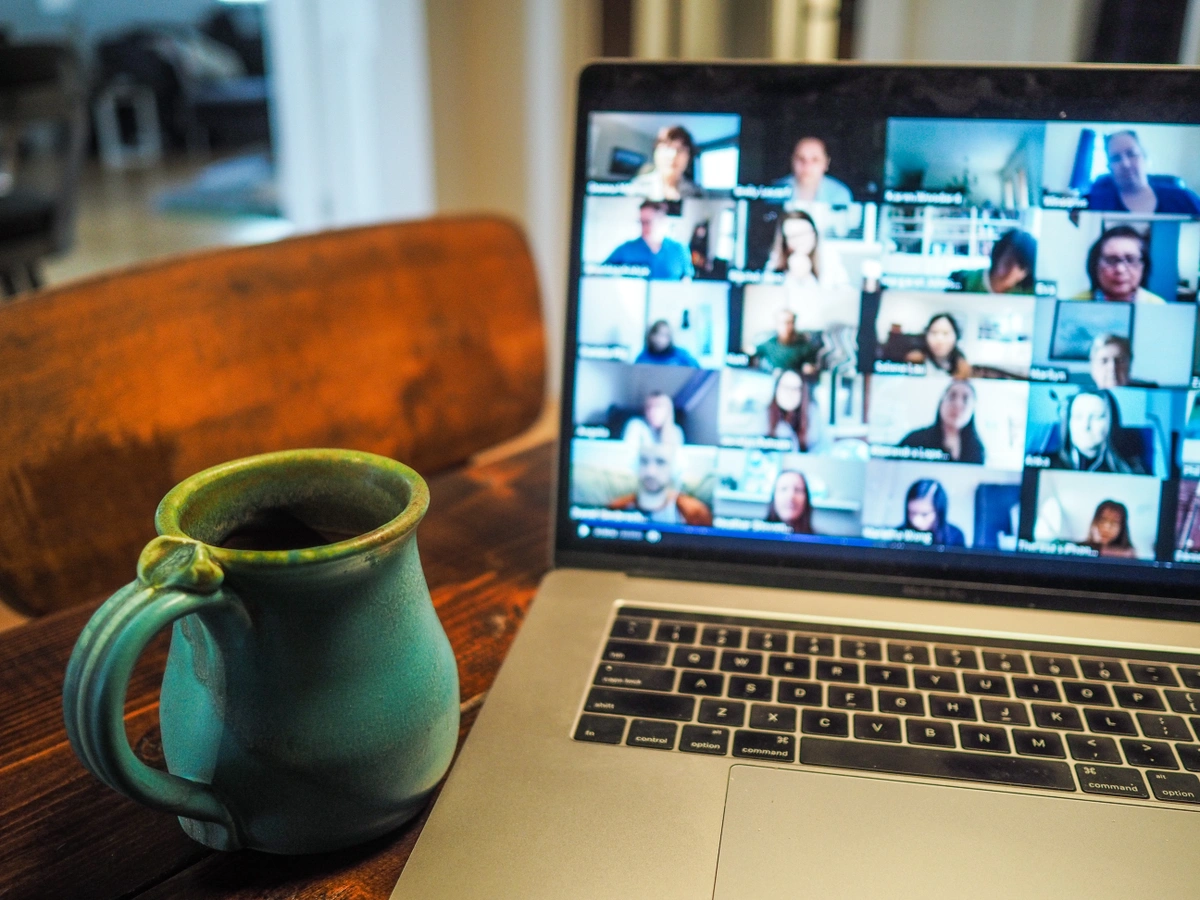The Role of Philosophy in the Dismissal of V Injury: A Kindred Member Story
October 23rd, 2023
Disclaimer: This Kindred community member article represents the author's opinions and experiences, not Hugo Health Kindred. Please consult with your healthcare provider before trying any treatment.
I was one of the first Americans to quarantine. I’m a jazz and classical musician. I traveled to China for a New Year’s concert in early 2020, just before things got really crazy—in Wuhan of all places. Had I left 3 days later, I would have been stuck there. I wrote letters to politicians urging them to take COVID seriously, but they didn’t respond. You have to be a celebrity to be acknowledged.
When the vaccine came out, I wanted to get vaccinated to protect my parents and the public. I felt like everyone had a moral obligation to get vaccinated. Nearly 2 years later, I had to get a work-mandated booster, which I felt was premature and unnecessary for someone in a low-risk category. I developed chest pain immediately after I got the booster. I went to the hospital, but they didn’t see anything. I began experiencing horrible pain at the injection site a few days later. Not long after that, spread to my other arm. I started having full-body muscle fasciculations 24 hours a day. It was difficult to function I had to stop working. It wasn’t normal.
Further lab testing revealed abnormal inflammatory markers. The treatment was an elephant dose of steroids, which caused unpleasant side effects. Also, steroids dampen the immune system response, making you more vulnerable to COVID.
In my search for care, I was lucky to find a very talented neurologist at a prominent hospital in a major city. She was one of the first providers to be transparent with me and say that she’s seen other people reporting similar reactions and that the vaccine isn’t benign.
Asking for informed consent about vaccines
COVID is dangerous. It’s killed many people, and we can’t forget that. We must protect ourselves, but we must know about any side effects from vaccines beforehand. It’s the right thing to do.
The vaccine may be harmless for most people, but what about those who experience side effects? The number of vaccine injuries is startling, but it’s hard to come by. You really have to dig for it.
Research indicates that some people developed an autoimmune disease after getting the vaccine. There’s a participant in the LISTEN study that I communicated with who developed multiple sclerosis (MS)-like symptoms after the vaccine. That’s life changing. Why aren’t we sounding the alarm?
Not every injury is a chronic condition, but even if you have a case of myocarditis that goes away, will you develop problems later on? Why are some people developing immune thrombocytopenia (ITP) after vaccination? There are some women reporting changes to their menstrual cycle. Maybe it goes away or doesn’t, but what’s causing it?
We need to know all the reported side effects, it’s the law. I don’t know why the information isn’t already easily available. When you watch any other drug commercial, there’s usually a list of side effects shared while someone throws a frisbee to a golden retriever or something.
Nobody should have to unknowingly experience what I’ve had to go through after being severely negatively impacted by the COVID-19 vaccine.
Necessary resources for people with vaccine injury
First and foremost, there needs to be a database with a team of physicians equipped to help people with vaccine injury. It should include infectious disease doctors, neurologists, and cardiologists. There should also be mental health counselors and psychologists because you may need therapy when you’re facing a serious physical ailment.
Additionally, it would help if you didn’t have to pay for anything. In fact, the government should pay you because you’re taking time out of your schedule to find treatment for a vaccine the government told you to take. The Countermeasures Injury Compensation Program (CICP) was established to help provide compensation for “covered serious injuries” from a vaccine, but there’s no transparency. It’s kind of a black hole. You don’t know who reviews your case, or if it's reviewed at all.
We also need high-profile people to go on the record and say this is happening and that vaccine injuries are real. It would be best if the medical establishment and American Medical Association at large acknowledged vaccine Injuries with the goal of better patient outcomes.
Learning from the past
I’m choosing to stay anonymous in this story because people will immediately draw certain conclusions if I speak about my injury. If you search, “vaccine side effects,” on Google, you can tell they’re trying to pull you in a certain direction. We’re unable to have an honest conversation about it.
I think, on some level, this isn’t entirely different from the Me Too movement. You have people advocating for themselves and saying the vaccine injured them, but they’re called liars and anti-vaxxers. These people are legitimately hurt and are being made to feel like they’re the problem. Even some physicians I’ve seen have admitted they’re afraid to speak out on behalf of their patients. I feel like there’s a fire, and we’re ignoring it.
If you want people to trust the science, you must be transparent. It’s not good for science, medicine, or public health to keep these injuries under wraps. It also fuels dangerous conspiracy theories.
The philosophical issue at hand This health issue, I believe, has become philosophical. Philosophy begins when you seek out knowledge and question the meaning of existence.
In his work the Republic, the ancient Greek philosopher Plato presents the Allegory of the Cave, explaining that we’re born into a prison of shadows and what we experience as reality are fragments of higher, true forms. These forms can only be perceived through reason. A person can free themselves from the cave when they begin to think outside the box to see things as they are and not as they appear to be.
There is this one widely accepted narrative that vaccines are lifesaving and harmless, and you’re a bad person if you say something negative about them. Anything that runs contrary to this is deemed unacceptable. I read in the media regularly that if you get vaccinated, you’re a good citizen, you’re smart, and you’re protecting others. If you’re skeptical, you’re an idiot and a danger to society. Nothing is that black and white, though.
The information you find online is curated, and people are only being exposed to particular viewpoints. I think that’s very dangerous. Imagine you grew up in a world where you only heard one style of music instead of a variety—you wouldn’t be very well-rounded! You’d be deprived of choice and freedom of expression. Frankly, you wouldn’t be you.
The gist
If there’s any positive that’s come of this for me— although I hate to put a positive spin on the situation— it’s that it’s motivated to take better care of my body. After reading stories like Chelsea’s and Jaime’s on Kindred, I decided I would get in shape to help my body get rid of the toxins. The medical establishment can’t help me, so I’m doing what I can to help myself. I’ve convinced myself it’s mind over matter and that I can improve.
My symptoms are mostly the same, but I’m in a better place mentally, which helps. The muscle fasciculations have subsided, giving me hope that the other symptoms will resolve.
I didn’t want to be in this category, it just happened to me. It’s a very strange new normal that I’ve had to get used to. You figure out how to adjust because you have no choice. I credit Hugo Health Kindred for giving people like me an outlet to express themselves. We need much more of this.
This story was written by Talia Aroshas as told by an anonymous Kindred network member living with vaccine injury.
Article resources:
Vaccine adverse event reporting system. (2023). Centers for Disease Control and Prevention.
Nazir M, Asghar S, Rathore MA, et al. Menstrual abnormalities after COVID-19 vaccines: A systematic review. Vacunas. 2022;23:S77-S87.
Prasad S, Jariwal R, Adebayo M, et al. Immune thrombocytopenia following covid-19 vaccine. Case Rep Hematol. 2022;2022:6013321.
Hathaway B. Yale study reveals insights into post-vaccine inflammation cases. (2023). Yale News.
Chen Y, Xu Z, Wang P, et al. New-onset autoimmune phenomena post-COVID-19 vaccination. Immunology. 2022;165(4):386-401. DOI:

Talia Aroshas
Kindred Content and Community Manager
I’ve been working in health content as an editor since 2017. It's an honor to be able to provide people with resources that empower them to take an active role in their health journey. I believe in the body’s incredible ability to heal when given the necessary tools and presented with the appropriate environment. I’m thrilled to be on the Kindred team and to work with such a dedicated, passionate community.


